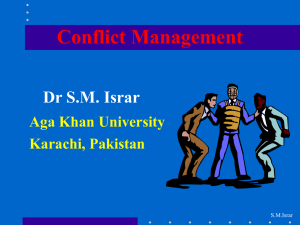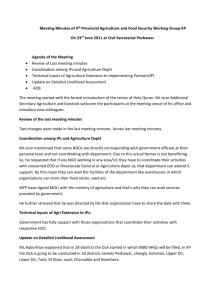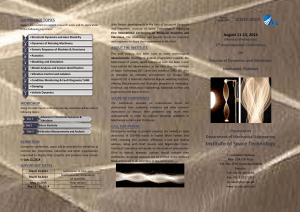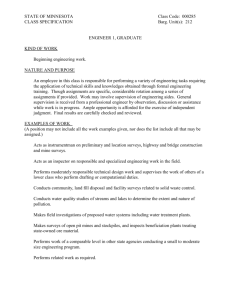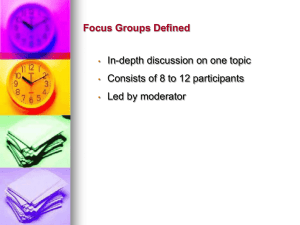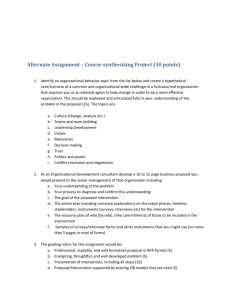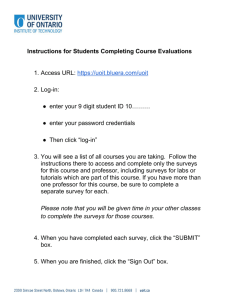Training Evaluation
advertisement
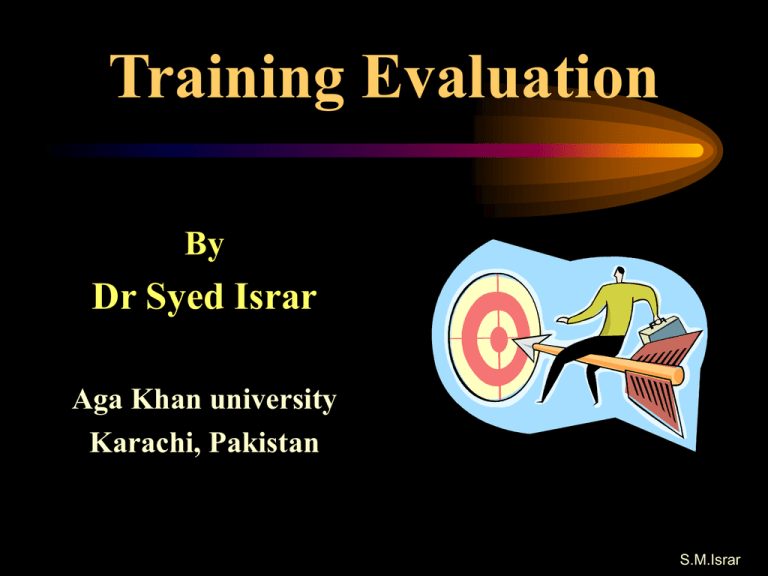
Training Evaluation By Dr Syed Israr Aga Khan university Karachi, Pakistan S.M.Israr Session Objectives: a. To define training evaluation b. To discuss the purpose of training evaluation c. To Identify different types of training evaluation d. To review and critique training evaluation tools S.M.Israr Training • Involves learning • implies learning to do something • it results in things being done differently S.M.Israr A Model Of training Based Upon Improving Effectiveness 1. What aspects of organizational effectiveness or performance are to be changed 6. Training/Learning activities 2. How are the levels of effectiveness or performance to be measured 3. What behaviors are necessary to achieve these levels 5. Is there a need for learning 4a. What knowledge, skills and attitudes are needed to support these behaviors 4b. What aspects of supervision, job design or structure need to be changed S.M.Israr Evaluation • It is a process of establishing a worth of something. • The ‘worth’, which means the value, merit or excellence of the thing S.M.Israr Evaluation is a ……….. • State of mind, rather than a set of techniques S.M.Israr Purpose of Evaluation • Feedback - on the effectiveness of the training activities • Control - over the provision of training • Intervention - into the organizational processes that affect training S.M.Israr Benefits of Evaluation • Improved quality of training activities • Improved ability of the trainers to relate inputs to outputs • Better discrimination of training activities between those that are worthy of support and those that should be dropped • Better integration of training offered and on-the job development • Better co-operation between trainers and linemanagers in the development of staff • Evidence of the contribution that training and development are making to the organization S.M.Israr What can be evaluated Remember 3 Ps • The Plan • The Process • The Product S.M.Israr How to evaluate the Plan • Course Objectives • Appropriate selection of participants • Timeframe • Teaching Methods S.M.Israr How to Evaluate the Process • • • • • Planning Vs. Implementation Appropriate participants Appropriate time Effective use of time teaching according to set objectives S.M.Israr Methods for Process Evaluation • Observation by the teacher him/herself • Observation by other teachers • Questionnaire completed by students • Evaluation discussion by students • Staff meetings S.M.Israr How to Evaluate the Product • Is only evaluation of the product sufficient? • Time • Ultimately all stages require evaluation in any case • Triangulation technique • Changes in effectiveness • Impact Analysis • Achieving Targets • Attracting Resources • Satisfying Interested Parties S.M.Israr Achieving Targets • • • • • Productivity Processing Time Profit Operating Cost Rates of meeting deadlines • Cost/Income ratio • % of tasks incorrectly done • Level of variation in product • Ability to cope with circumstances • Time to reach job competency • levels of supervision required • Frequency and costs of accidents S.M.Israr Attracting Resources • Increase in number of clients • New markets entered • New branches opened • Ability to cope with external changes • Increase in the pool of trained staff • skills for future job requirement developed • Flexibility in meeting changing customer’s requirements • improvements in the competencies S.M.Israr Satisfying Interested Parties • Clients complaints • Product or service quality • Awareness of clients problems • Program image surveys • Clients relations surveys • Surveys within the organization • On-time deliveries S.M.Israr Training and the workplace Framework of Kirkpatrick 1 2 3 4 WORK PLACE TRAINING Reactions Results Learning Behavior S.M.Israr The question that we should be asking is not ‘Why Evaluate Training? But Can we afford not to evaluate training activities
